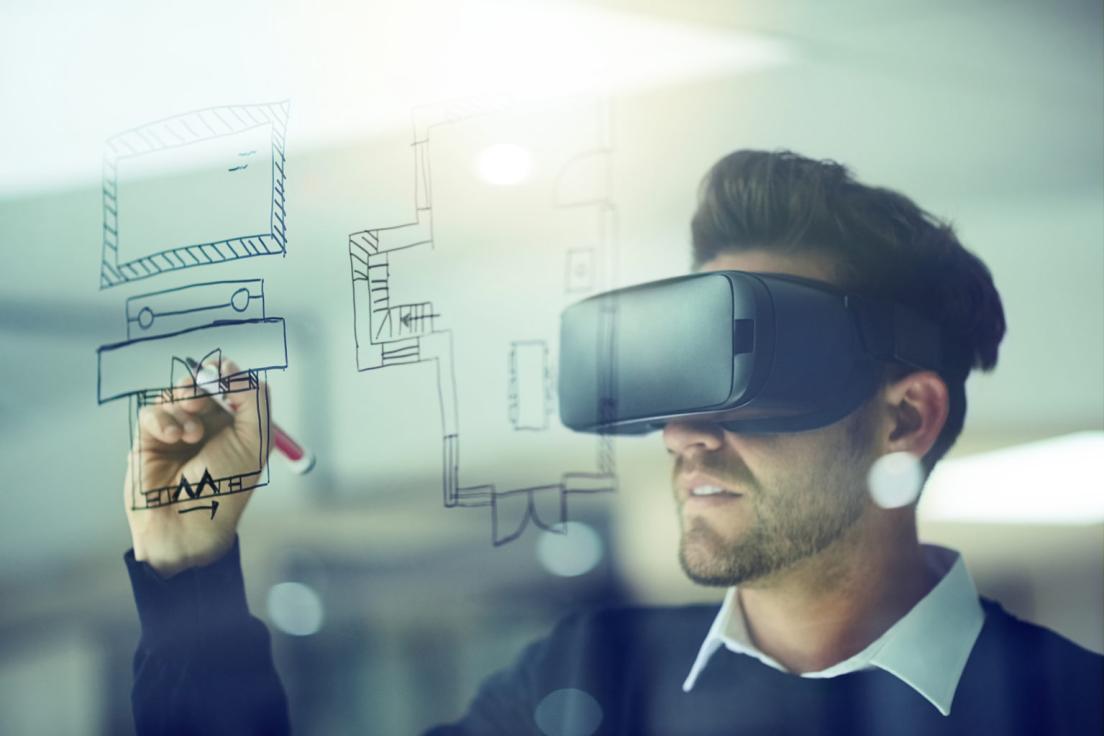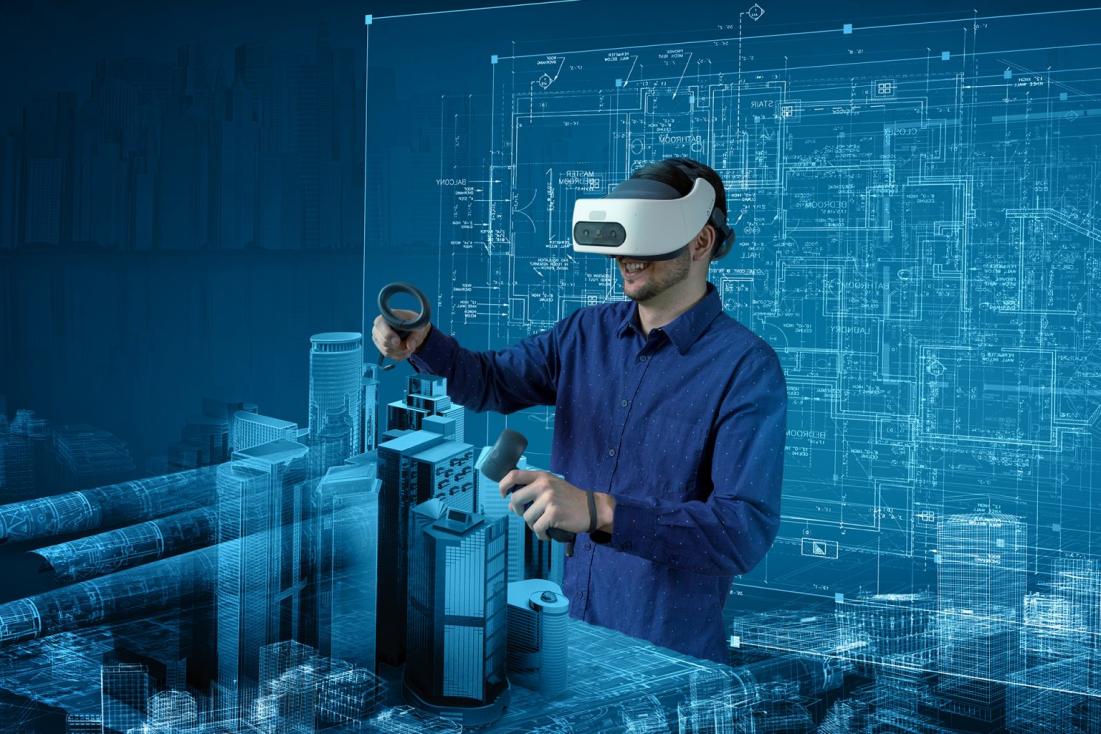Exploring the Potential of AI-Powered Virtual Reality for Immersive Learning Experiences
In the realm of education, the integration of technology has opened up new avenues for engaging and effective learning. Among these advancements, AI-powered virtual reality (VR) stands out as a promising tool for creating immersive learning experiences that transcend traditional boundaries.

AI-Powered VR: A Paradigm Shift In Education
AI-powered VR combines the captivating nature of virtual reality with the intelligence of artificial intelligence, creating a dynamic and interactive learning environment. This convergence of technologies offers a range of benefits that can revolutionize the way we learn and teach.
Enhanced Engagement And Motivation
- VR's immersive nature captures learners' attention, fostering a sense of presence and involvement.
- Interactive elements and gamification techniques promote active participation and motivation.
Multisensory Stimulation
- VR engages multiple senses, creating a more comprehensive and memorable learning experience.
- Visual, auditory, and tactile feedback enhance understanding and retention.
Personalized Learning Environments
- AI-powered VR can adapt to individual learning styles and preferences.
- Personalized feedback and tailored content optimize the learning process.
Improved Knowledge Retention And Transfer
AI-powered VR offers unique advantages for knowledge retention and transfer:
Realistic Simulations And Scenarios
- VR simulations provide realistic scenarios that allow learners to apply knowledge in practical contexts.
- Experiential learning enhances understanding and retention.
Experiential Learning Opportunities
- VR enables learners to actively participate in virtual environments, solving problems and making decisions.
- Hands-on experiences promote deeper understanding and skill development.
Active Participation And Problem-Solving
- VR encourages active participation and collaboration, fostering critical thinking and problem-solving skills.
- Learners engage in decision-making and experience the consequences of their choices.
Fostering Collaboration And Social Interaction
AI-powered VR can foster collaboration and social interaction in learning:
Virtual Classrooms And Group Projects
- VR classrooms allow learners to interact with each other and instructors in a virtual space.
- Group projects and collaborative tasks promote teamwork and communication skills.
Peer-to-Peer Learning And Feedback
- VR platforms can facilitate peer-to-peer learning and feedback, encouraging learners to share knowledge and insights.
- Collaborative learning environments foster a sense of community and support.
Building A Sense Of Community
- VR can create a sense of community among learners, regardless of their physical location.
- Shared experiences and interactions in virtual environments strengthen bonds and promote a supportive learning environment.
Applications Of AI-Powered VR In Immersive Learning

AI-powered VR has wide-ranging applications across different educational levels and domains:
K-12 Education
- Science and history lessons come alive through interactive simulations and virtual field trips.
- Language learning is enhanced through immersive experiences in virtual environments.
- Art and music appreciation is enriched by multisensory interactions.
Higher Education And Professional Training
- Medical simulations provide realistic practice for healthcare professionals.
- Engineering and architecture students design and test virtual prototypes.
- Business case studies and role-playing scenarios offer experiential learning opportunities.
Corporate Training And Development
- Soft skills development is enhanced through virtual role-playing and simulations.
- Technical training is conducted in safe and controlled virtual environments.
- Leadership and communication skills are honed through immersive experiences.
Challenges And Future Directions
While AI-powered VR holds immense potential, it also presents challenges that need to be addressed:
Ethical Considerations And Data Privacy
- The use of VR and AI raises ethical concerns regarding data privacy and informed consent.
- Balancing personalization with privacy concerns is crucial.
Balancing Personalization With Privacy Concerns
- AI-powered VR systems collect vast amounts of data, which can be used to personalize learning experiences.
- However, it is essential to ensure that data is used responsibly and with the consent of learners.
Addressing Issues Of Digital Inequality And Access
- VR technology can exacerbate digital inequality, as access to VR devices and high-speed internet may be limited in certain regions.
- Efforts must be made to ensure equitable access to VR-based learning opportunities.
Technological Limitations And Accessibility
- VR technology is still evolving, and certain limitations, such as motion sickness and compatibility issues, need to be addressed.
- Ensuring widespread availability and affordability of VR devices is crucial for its adoption in education.
Need For Effective Pedagogical Integration
- Effective integration of VR into educational practices is essential for maximizing its benefits.
- Developing best practices for VR-based learning and training educators in the use of VR technology is necessary.
Recap Of The Key Points

AI-powered VR has the potential to transform education by creating immersive learning experiences that enhance engagement, motivation, and knowledge retention. Its applications span various educational levels and domains, offering unique opportunities for experiential learning, collaboration, and skill development. However, challenges related to ethical considerations, data privacy, digital inequality, and technological limitations need to be addressed for successful implementation. Continued research and innovation are crucial to unlock the full potential of AI-powered VR in education.
The convergence of AI and VR presents an exciting frontier in education, with the potential to revolutionize the way we learn and teach. As technology continues to advance, we can expect even more innovative and transformative applications of AI-powered VR in the realm of immersive learning experiences.
YesNo

Leave a Reply